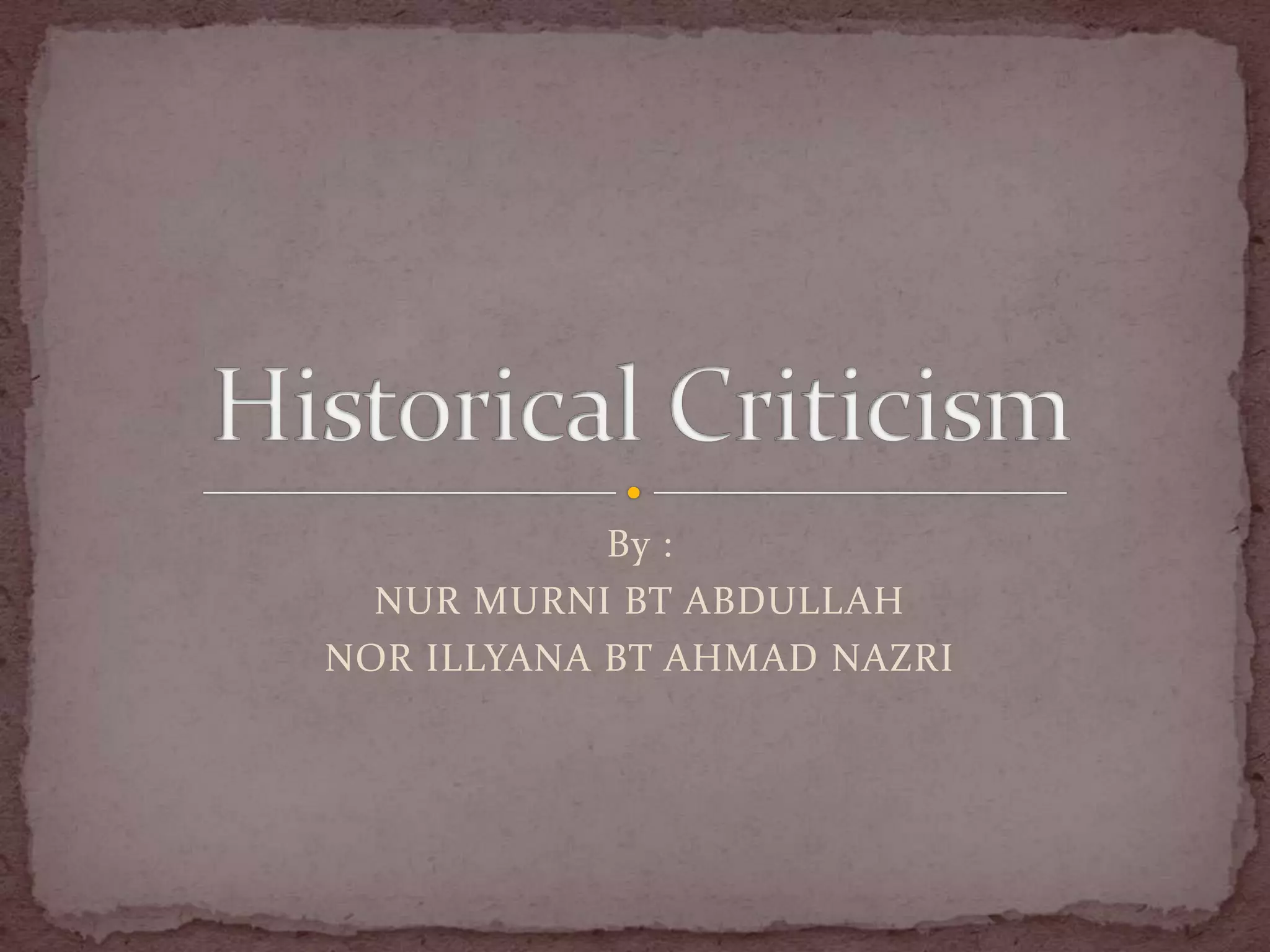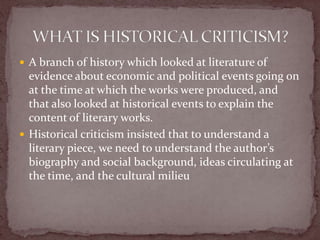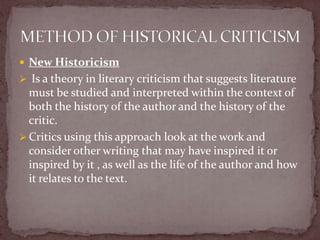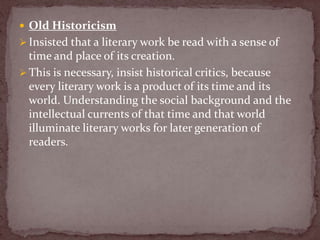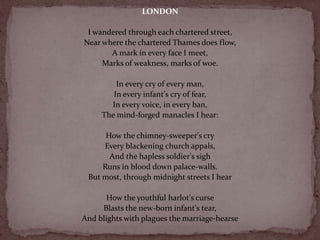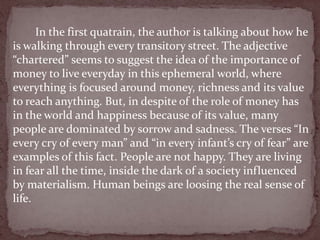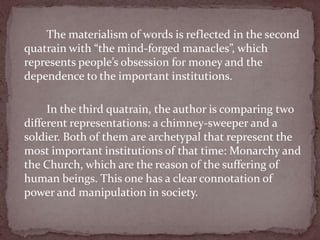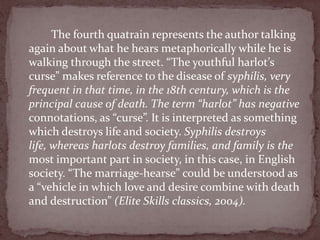The document analyzes William Blake's poem "London" using historical criticism and new historicism. It summarizes that the poem depicts a bleak view of London where people are dominated by sorrow, fear, and obsession with materialism. It describes how the poem uses archetypes like chimney sweepers and soldiers to represent how institutions like the monarchy and church cause human suffering. The analysis concludes that the poem shows how diseases and issues like syphilis destroy life and families, which are important parts of English society at that time.
